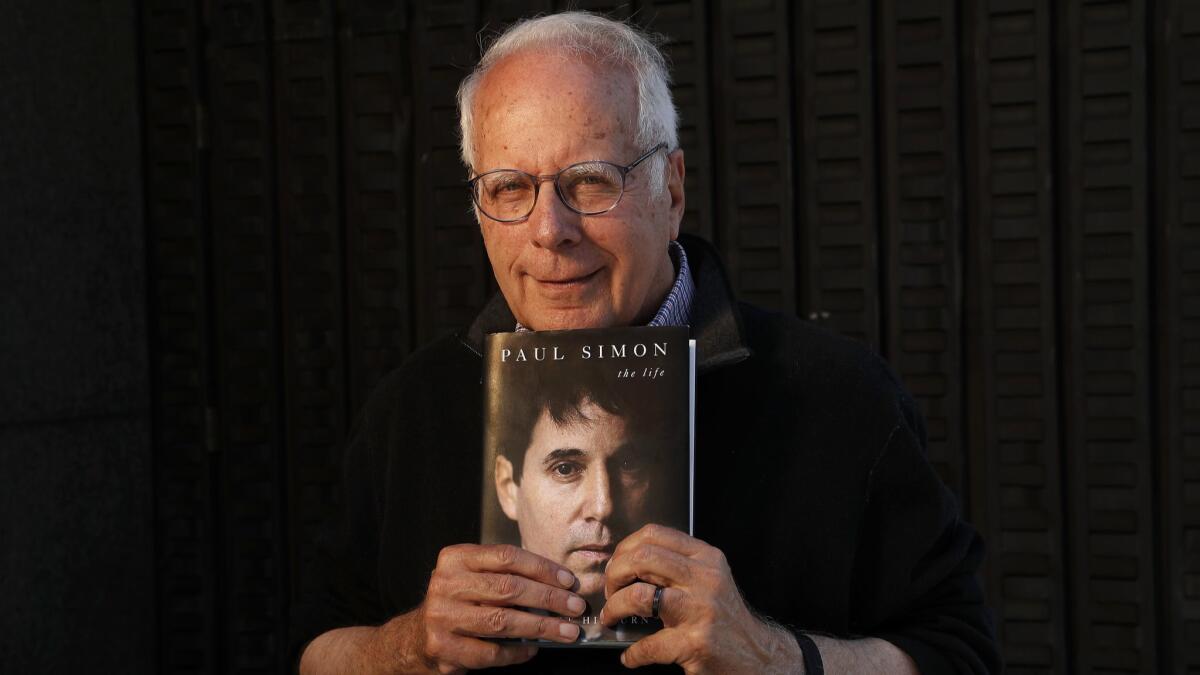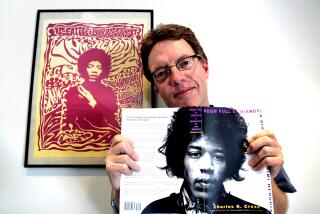Biographer Robert Hilburn singles out five favorite Paul Simon songs

In conjunction with the publication of his new book, ”Paul Simon: The Life,” on Tuesday, The Times’ former pop music critic Robert Hilburn was asked by staff writer Randy Lewis to single out five favorite songs by the veteran singer-songwriter, and to explain why he chose each.
Here are his choices, listed chronologically:
“The Sound of Silence” (1965): I find it so amazing because it has stood up all this time. You still hear it in concert and you just get chills. What a great song — and knowing the story behind it: He’s sitting in his bathroom at night, with the lights all off, and he’s trying to find his own voice [as a songwriter]. He’s sad [about the assassination of President John F. Kennedy] and writes, “Hello darkness my old friend.” Then he starts thinking about how people don’t listen. To write that at only 23 or 24 and [at that point] he hadn’t written a great song in his life, and he writes that song. It’s a bold moment.
“The Boxer” (1969): I would rate that against any of Dylan’s songs. It’s an incredible way of talking about his own struggles, and triumphs: the struggles of getting attention as a songwriter, of getting over feeling that he was too short, about growing up in unhip Queens [N.Y.], playing folk music, not rock ‘n’ roll. He was very proud that both Dylan and Joan Baez recorded that.
“American Tune” (1973): Listen to the songs that are nominated [today] for the Grammy for song of the year. Are these songs going to be remembered tomorrow? Can you imagine? How could anybody have written a song like that? It is staggering. But that was written back in the ’60s and ’70s when songwriters ruled. He refers to it as “my Nixon impeachment song,” but it applies just as much today. That’s why I can’t imagine if somebody in their 20s wrote that today: Would they ignore it, because people aren’t looking for thoughtful songs?
“Graceland” (1986): I just love having him tell the story of how it came about. He goes and visits Graceland, and he sees all these people coming, because Elvis meant all this to them. They’re all coming to feel this redemption, and he feels that in his own life — he was going through a divorce, he is seeking redemption, everybody’s seeking redemption, and he thinks, “We all will be received in Graceland.” He discovers that; he didn’t start off thinking, “I’m going to write a song about redemption.” Fellini used to say you can’t make a great movie from a book — it needs to be an original screenplay, or you’re limiting your imagination. That’s what Simon thinks: You can’t limit yourself to what you can think of. He doesn’t write 100 songs and pick the five or 10 best ones. He writes 10 songs, and puts all his energy into writing those songs.
“Questions for the Angels” (2011): It’s just an incredible song. It summarizes what he thinks about the planet, about ecology, about people living together. It has one of my favorite lines ever written: “If every human on the planet and all the buildings should disappear, would a zebra grazing in the African Savanna care enough to shed a single zebra tear?” How can you write that? It’s fantastic.
Follow @RandyLewis2 on Twitter.com
For Classic Rock coverage, join us on Facebook
More to Read
The biggest entertainment stories
Get our big stories about Hollywood, film, television, music, arts, culture and more right in your inbox as soon as they publish.
You may occasionally receive promotional content from the Los Angeles Times.










